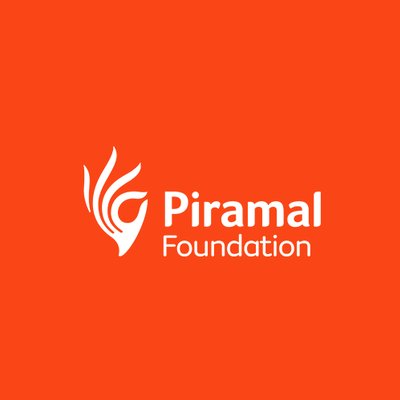It will ahppen at Aspirational Districts in partnership with Niti Aayog
This initiative will reach over 1.25 lakh people in 4 Aspirational Districts of Maharashtra and 20 lakh people across the country
100 Covid Care centres to be set up in Tribal and Rural blocks across India that currently have poor access to health services
20 lakh patients to be provided Home Care Support for asymptomatic, mild symptoms to reduce pressure on overburdened health system
New Delhi, NFAPost: Piramal Foundation, the philanthropic arm of Piramal Enterprises Limited (PEL), has launched significant initiatives to address the devastating impact of the second wave of Covid in India’s Aspirational Districts.
To address the current emergency due to the second wave of Covid-19, the Foundation, will set up 100 Covid Care Centres in rural and tribal blocks across 25 of the worst affected Aspirational districts, and Home Care Support to the tribal and rural population with poor access to health services in 112 Aspirational districts across India in partnership with Niti Aayog. Piramal Foundation will invest Rs 100 crores towards COVID Relief in the Aspirational Districts, in Partnership with Niti Aayog.
The intervention seeks to reach 2 million people in 1143 blocks through a network of 1000+ NGOs and over 1 lac volunteers. In Maharashtra alone, it aims to reach 1.25 lakh people in 32 blocks of 4 Aspirational Districts of Gadchiroli, Nandurbar, Osmanabad and Washim.
Fatalities
In Maharashtra, the 4 Aspirational Districts have been among the worst hit. These districts account for 1.6 lakh cases and close to 3063 fatalities. The number is growing alarmingly by the day, with almost 3.3 per cent of the deaths in Maharashtra happening in these aspirational districts.
Piramal Enterprises Limited Public Health Expert and Vice-Chairperson Swati Piramal said as the pandemic spreads rapidly from urban areas to the rural hinterlands, containing the second wave of Covid-19 and curtailing the severity of a third wave is the top priority of the government.
“With its limited public health infrastructure and lack of skilled personnel, the rural health system is not adequately equipped to manage a surge in cases. There is a need for urgent and innovative action to address this gap. ‘Anamaya’, the Tribal Health Collaborative and other Piramal Foundation initiatives will help reduce the burden on the system and improve access to healthcare for the rural and tribal communities,” said Swati Piramal.
Temporary facilities
The covid care centres with 30 to 100-bed temporary facilities are planned at the block level in 25 aspirational districts, including 4 districts in Maharashtra.
Each Centre will cater to the population in the catchment area of the associated Primary Health Centre. These will be dedicated spaces for COVID positive, asymptomatic or mildly symptomatic cases to be isolated and cared for in a well-ventilated room with essential facilities.
Home Care Support will be provided to 20 lakh rural and tribal communities in 112 Aspirational Districts through 1,000+ NGOs and 1 lakh plus volunteers to support COVID patients and families as a viable alternative for asymptomatic, mild symptom patients seeking support from hospitals.
Train volunteers
Through local NGOs the intervention will enlist and train volunteers to engage with patients based on in-bound/out-bounds calls to educate caretakers to follow COVID protocol and provide timely updates about patients.
Maharashtra District Magistrate Nandurbar said this pandemic has re-iterated the power of collaboration for all of us. “The support from philanthropic partners and civil society organisations have contributed immensely to each districts preparedness and COVID response,” said Nandurbar.
Nandurbar said Piramal Foundation has been a crucial member of our Covid task force in Nandurbar, they have been supporting us in the Aspirational Districts Programme for three years now.
“With this second wave, they’ve left no stone unturned in supporting us with providing essential medical supplies, following up with home isolation centres, handholding the on-ground staff, mobilising communities for covid vaccination, and popularising COVID appropriate behaviour through community and tribal influencers,” said Nandurbar.
Composite index
The government of India has identified 112 Districts across the country based on a composite index of challenges faced in terms of poverty, with citizens having relatively poor health and nutritional outcomes, educational status, and deficient infrastructure. 50 % of ADs, are severely affected by demographic, geographic and socio-economic issues, such as 25 districts being tribal-dominated, 23 being flood-prone, and where 25% of landless households are dependent on manual labour.
Launched by Prime Minister Narendra Modi, the ‘Transformation of Aspirational Districts’ programme aims to effectively transform these districts based on 3 contours of Convergence (of Central & State Schemes), Collaboration (of Central, State level ‘Prabhari’ Officers & District Collectors), and Competition. With States as the main drivers, it focuses on the strength of each district, identifies low-hanging fruits for immediate improvement, measure progress, and rank districts.





